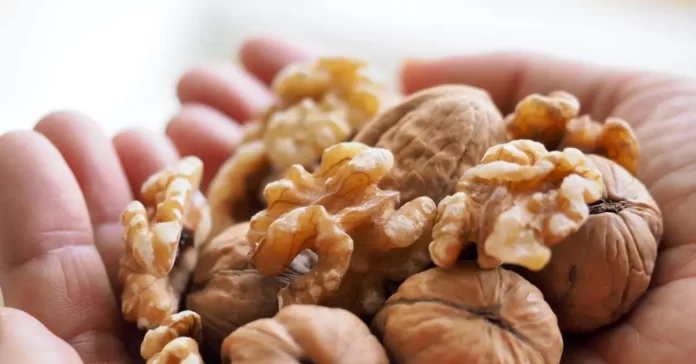Have you ever wondered if the food you eat could help boost your memory? Well, you’re in for a nutty surprise! We’re going to explore the potential benefits of walnuts on memory function. We’re providing clear, straightforward information for everyone without any complicated science or jargon.
The Memory Maze
Before we dive into the walnut wonder, let’s briefly discuss how memory works. Memory involves various processes, including encoding, storing, and retrieving information. These processes rely on the brain’s health and efficiency.
The Walnut Connection
Now, here’s the exciting part: walnuts, those humble tree nuts, might have a positive impact on memory function. How? Walnuts contain a wealth of nutrients that benefit brain health.
- Omega-3 Fatty Acids: Walnuts are rich in omega-3 fatty acids, which are like fuel for your brain. These healthy fats support cognitive function and might help with memory improvement.
- Antioxidants: Walnuts also contain antioxidants, which safeguard your brain cells from oxidative stress. A healthier brain leads to better memory.
- Vitamins and Minerals: They’re a good source of brain-boosting vitamins and minerals, including vitamin E, folate, and magnesium.
- Anti-Inflammatory Properties: Inflammation can harm brain function. Walnuts have anti-inflammatory properties that might help keep your brain in tip-top shape.
- Neurotransmitter Support: Some researchers believe that components in walnuts promote healthy neurotransmitter function, enhancing the connections between brain cells.
Memory-Boosting Tips
While walnuts can be a tasty addition to your diet, remember that they work best as part of a balanced, brain-healthy lifestyle. Here are a few tips to get the most out of your walnut-rich diet:
- Moderation: Eating a small handful of walnuts is a good starting point. Overindulgence won’t lead to better memory.
- Variety: Combine walnuts with other brain-boosting foods like berries, leafy greens, and fish for a more well-rounded approach.
- Stay Active: Regular exercise and physical activity are essential for maintaining cognitive function.
- Quality Sleep: Make sure you get enough rest. Sleep is when your brain consolidates memories.
- Mental Stimulation: Keep your brain engaged with puzzles, reading, and learning new things.
Conclusion
So, can walnuts improve memory function? While research is ongoing, the evidence suggests that walnuts can be a valuable addition to your diet if you’re looking to enhance your memory and overall brain health. They’re an easy, natural way to give your brain a boost without the need for fancy supplements or complicated diets. Incorporate them into your daily routine and allow their nutty goodness to enhance your cognitive well-being.
Frequently Asked Questions (FAQs)
Do walnuts help improve memory?
While the research is ongoing, there’s evidence to suggest that walnuts, due to their nutritional content, may contribute to improved memory function.
How many walnuts should I eat daily for memory improvement?
A small handful, approximately 1-1.5 ounces (about 28-42 grams), is a good starting point. Consuming them in moderation is always the key.
Can I get the same benefits from other nuts, or are walnuts unique?
Walnuts are particularly rich in omega-3 fatty acids and antioxidants, which make them unique in supporting brain health compared to some other nuts.
Are there any potential side effects or allergies associated with walnuts?
Walnuts can trigger allergies in some individuals. If you have a nut allergy, consult a healthcare professional before adding them to your diet.
Can I incorporate walnuts into my children’s diet for better memory?
Yes, you can include walnuts in your child’s diet, but ensure they are not allergic. Begin with small amounts and closely observe their reactions.
Are there any recipes or creative ways to include walnuts in my diet?
Yes, there are numerous delicious recipes, such as adding walnuts to oatmeal, yogurt, or salads and using them in baking or as a crunchy topping.
Can walnuts help with age-related memory decline?
Walnuts, as part of a brain-healthy diet, may contribute to maintaining cognitive function as you age, though individual results may vary.
How soon can I notice memory improvements after adding walnuts to my diet?
The impact of walnuts on memory may not be immediate. Long-term dietary changes are more likely to yield benefits over time.
Can I still benefit from walnuts if I have an existing memory condition or disease?
Walnuts can be a part of a holistic approach to brain health but are not a standalone treatment for memory-related conditions. Seek personalized guidance from a healthcare professional.
Are there any scientific studies or research supporting the memory benefits of walnuts?
Yes, there is scientific research exploring the potential cognitive benefits of walnuts. You can find more details in relevant studies and articles.










